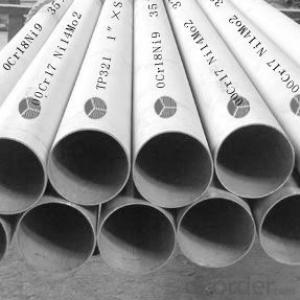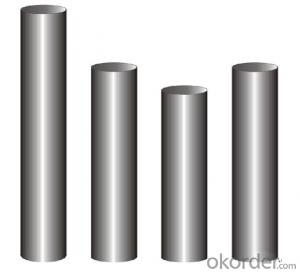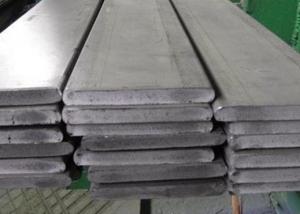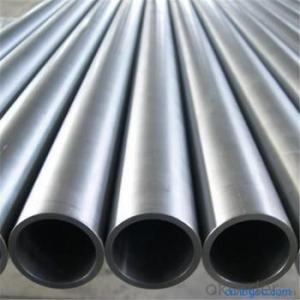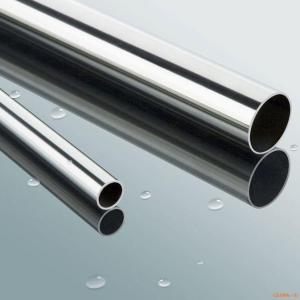Stainless Duplex Seamless Steel Pipe High Nicke 31803
- Loading Port:
- Ningbo
- Payment Terms:
- TT OR LC
- Min Order Qty:
- 1 m.t.
- Supply Capability:
- 5000 m.t./month
OKorder Service Pledge
OKorder Financial Service
You Might Also Like
1、Structure of Duplex steel A790 31803 seamless pipe Description:
Stainless steel is a production which not easy rust,acid resistance and corrosion resistance,so it is widely used in light industry,heavy industry,daily necessities and the decoration industry.my company long-term supply stainless steel porducts including:stainless steel sheet,stainless steel coil and stainless steel tube.
2、Main Features of Duplex steel A790 31803 seamless pipe:
• High manufacturing accuracy
• High strength
• Small inertia resistance
• Strong heat dissipation ability
• Good visual effect
•Reasonable price
3、Duplex steel A790 31803 seamless pipe Images:
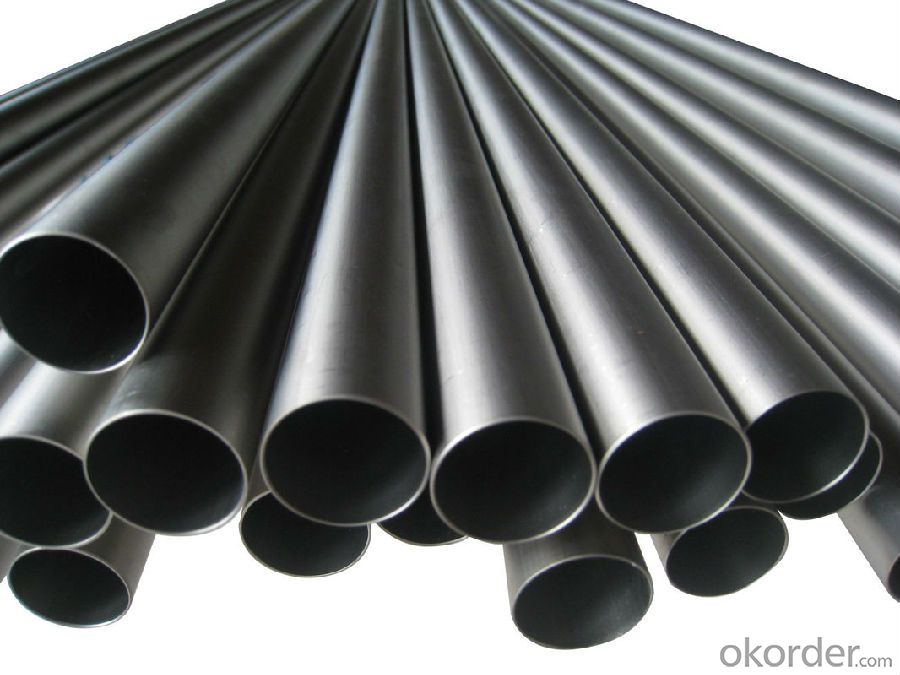
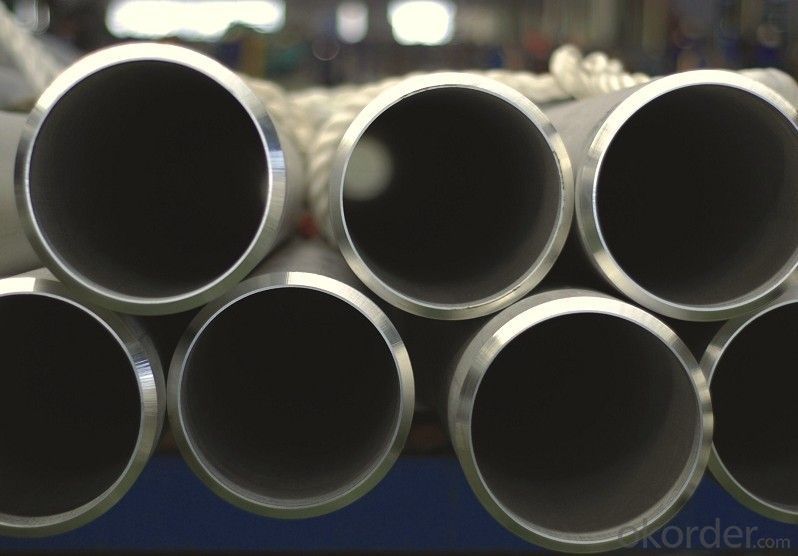
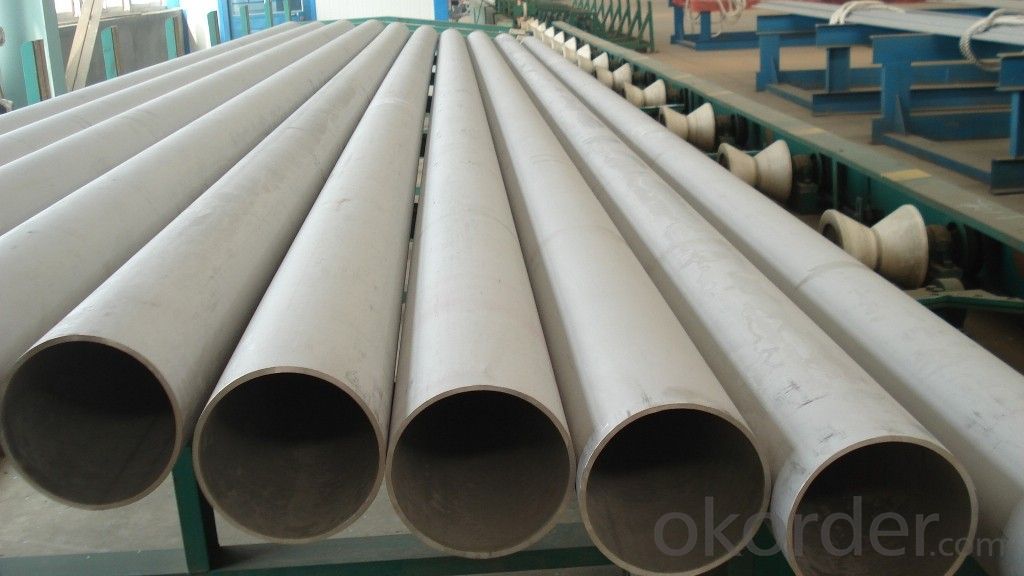
4、Duplex steel A790 31803 seamless pipe Specification:
1. Process: Cold Rolling/ Cold Drawn
2. Size: 10mm-480mm
3. Standards: ASTM A312, ASTM A213, ASTM A269, DIN 2462, JIS G3463
4. Schedules:1mm-30mm
5. Material: TP304, TP304L, TP316L, TP321, TP317L, TP310S, TP347H, duplex steel
6.Surface Treatment: polishing, sand blasting,annealing and acid pickling
7.Package: export package (weaving bag ,non-fabric ,wooden case)
| process | size | standard | schecules | material | surface | package |
cold drawn/ cold rolling | 10-480mm | A312 A213 A269 etc. | 1-30mm | 304/321/316 310/317/347 duplex steel
| polishing annealing and pickling
| weaving bag in bundle plywood case |
5、FAQ of Duplex steel A790 31803 seamless pipe:
①How is the quality of your products?
Our products are manufactured strictly according to national and internaional standard, and we take a test
on every pipe before delivered out. If you want see our quality certifications and all kinds of testing report, please just ask us for it.
Guaranteed: If products’ quality don’t accord to discription as we give or the promise before you place order, we promise 100% refund.
②How about price?
Yes, we are factory and be able to give you lowest price below market one, and we have a policy that “ for saving time and absolutely honest business attitude, we quote as lowest as possible for any customer, and discount can be given according to quantity”,if you like bargain and factory price is not low enough as you think, just don’t waste your time.Please trust the quotation we would give you, it is professional one.
③Why should you chose us?
Chose happens because of quality, then price, We can give you both.Additionally, we can also offer professional products inquiry, products knowledge train(for agents), smooth goods delivery, exellent customer solution proposals.Our service formula: good quality+good price+good service=customer’s trust
SGS test is available, customer inspection before shipping is welcome, third party inspection is no problem.
Any question, pls feel free to contact us !
- Q:Can stainless steel pipes be welded?
- Yes, stainless steel pipes can be welded. Stainless steel is a popular material used in various industries due to its high corrosion resistance and strength. Welding is one of the common methods used to join stainless steel pipes together. However, it is important to use the appropriate welding techniques and equipment to ensure a successful weld. Stainless steel has different grades, each with its own specific welding requirements. The welding process for stainless steel pipes typically involves using a filler material that matches the grade of stainless steel being welded. It is also crucial to properly clean and prepare the surfaces to be welded to ensure a strong and durable joint.
- Q:Can stainless steel pipes be used for gas applications?
- Indeed, gas applications can utilize stainless steel pipes. Thanks to their remarkable resistance to corrosion and ability to endure elevated temperatures, stainless steel proves an ideal material for gas transportation. Moreover, these pipes boast exceptional strength and durability, instilling confidence in the safety and dependability of the gas system. Consequently, they find widespread use in industrial, commercial, and residential settings where gas transport is necessary. Nonetheless, it remains crucial to verify that the stainless steel pipes employed meet the precise criteria and standards for gas applications, guaranteeing optimal installation and performance.
- Q:What is the difference between 304J2 and 316J2 stainless steel pipes?
- 304J2 and 316J2 stainless steel pipes differ primarily in their chemical composition and the presence of specific elements. 304J2 stainless steel is a variation of the popular 304 grade. It possesses approximately 18-20% chromium and 8-10.5% nickel, resulting in commendable corrosion resistance, particularly in mildly corrosive surroundings. Nevertheless, its molybdenum content is lower compared to 316J2. In contrast, 316J2 stainless steel is a variant of the 316 grade. It contains roughly 16-18% chromium, 10-14% nickel, and 2-3% molybdenum. The augmented molybdenum content heightens its resistance to corrosion, making it suitable for more aggressive settings like marine or chemical applications. Regarding mechanical properties, both grades exhibit similar tensile and yield strength. However, due to the elevated levels of nickel and molybdenum, 316J2 stainless steel pipes generally display superior resistance to pitting and crevice corrosion. Ultimately, the selection between 304J2 and 316J2 stainless steel pipes relies on the specific application and the extent of corrosion resistance desired. While 304J2 suffices for general use in mildly corrosive environments, 316J2 is preferable when exposure to more aggressive conditions is anticipated.
- Q:What is the cost difference between stainless steel pipes and other materials?
- The cost difference between stainless steel pipes and other materials can vary depending on various factors such as the type of material being compared, the size and specifications of the pipes, and the current market conditions. In general, stainless steel pipes tend to be more expensive than other materials such as PVC, copper, or galvanized steel. This is primarily due to the higher production and raw material costs associated with stainless steel, as well as its superior qualities and durability. Stainless steel pipes offer numerous advantages over other materials, including excellent corrosion resistance, high strength, and the ability to withstand extreme temperatures. These qualities make stainless steel pipes ideal for various applications, especially in industries such as oil and gas, chemical processing, and water treatment. While stainless steel pipes may have a higher upfront cost, they often provide long-term cost savings due to their extended lifespan and reduced maintenance requirements. Additionally, the higher initial investment in stainless steel pipes can be justified by considering the potential costs associated with pipe failures, leaks, or replacements that may occur with other materials. It is important to note that the cost difference between stainless steel pipes and other materials can vary significantly depending on the specific project requirements and market conditions. Therefore, it is advisable to consult with suppliers, contractors, or industry professionals to obtain accurate and up-to-date pricing information for a specific application.
- Q:What is the difference between Schedule 30 and Schedule 40 stainless steel pipes?
- The main difference between Schedule 30 and Schedule 40 stainless steel pipes lies in their wall thickness. Schedule 40 pipes have a thicker wall compared to Schedule 30 pipes. This difference in thickness makes Schedule 40 pipes more suitable for high-pressure applications and heavy-duty usage, while Schedule 30 pipes are typically used for lower-pressure applications.
- Q:Can stainless steel pipes be used for chemical processing?
- Yes, stainless steel pipes can be used for chemical processing. Stainless steel has excellent corrosion resistance and high temperature resistance, making it suitable for handling various chemicals and maintaining the integrity of the process.
- Q:Can stainless steel pipes be coated with epoxy?
- Yes, stainless steel pipes can be coated with epoxy. Epoxy coatings are commonly used to protect and enhance the performance of stainless steel pipes in various industries. The epoxy coating provides a barrier against corrosion, chemical damage, and abrasion, prolonging the lifespan of the pipes. It also helps to improve the flow efficiency of the pipes by reducing friction and preventing the build-up of deposits or scaling. Additionally, epoxy coatings can be applied to stainless steel pipes for aesthetic purposes, allowing for customization and color-coding of different pipe systems. Overall, the use of epoxy coatings on stainless steel pipes offers numerous benefits in terms of protection, durability, and functionality.
- Q:Are stainless steel pipes suitable for wastewater treatment plants?
- Indeed, wastewater treatment plants find stainless steel pipes to be quite suitable. The reason lies in the fact that stainless steel boasts remarkable resistance to corrosion, a quality of utmost importance in an environment where wastewater might house aggressive chemicals and substances. Not only can stainless steel pipes withstand the elevated temperatures and pressures commonly present in wastewater treatment plants, but they also prove to be a long-lasting and dependable option. Furthermore, the ease with which stainless steel pipes can be cleaned and maintained further diminishes the likelihood of contamination during the treatment process. Hence, the durability, corrosion resistance, and ease of maintenance that stainless steel pipes offer have made them a favored choice for wastewater treatment plants.
- Q:Are stainless steel pipes suitable for food storage facilities?
- Yes, stainless steel pipes are highly suitable for food storage facilities. Stainless steel is a non-reactive and corrosion-resistant material, making it ideal for handling food and beverages. It does not impart any taste, odor, or contaminants to the stored food, ensuring its quality and safety. Stainless steel pipes are also easy to clean, maintain hygiene standards, and have a long lifespan, making them a preferred choice for food storage facilities.
- Q:How do stainless steel pipes compare to PVC pipes?
- Stainless steel pipes are generally more durable, have higher heat resistance, and are better suited for high-pressure applications compared to PVC pipes. While PVC pipes are lightweight, cost-effective, and easier to install, they are prone to cracking, chemical reactions, and may not be suitable for certain environments. Therefore, the choice between stainless steel and PVC pipes depends on the specific needs of the application.
1. Manufacturer Overview |
|
|---|---|
| Location | |
| Year Established | |
| Annual Output Value | |
| Main Markets | |
| Company Certifications | |
2. Manufacturer Certificates |
|
|---|---|
| a) Certification Name | |
| Range | |
| Reference | |
| Validity Period | |
3. Manufacturer Capability |
|
|---|---|
| a)Trade Capacity | |
| Nearest Port | |
| Export Percentage | |
| No.of Employees in Trade Department | |
| Language Spoken: | |
| b)Factory Information | |
| Factory Size: | |
| No. of Production Lines | |
| Contract Manufacturing | |
| Product Price Range | |
Send your message to us
Stainless Duplex Seamless Steel Pipe High Nicke 31803
- Loading Port:
- Ningbo
- Payment Terms:
- TT OR LC
- Min Order Qty:
- 1 m.t.
- Supply Capability:
- 5000 m.t./month
OKorder Service Pledge
OKorder Financial Service
Similar products
New products
Hot products
Related keywords
